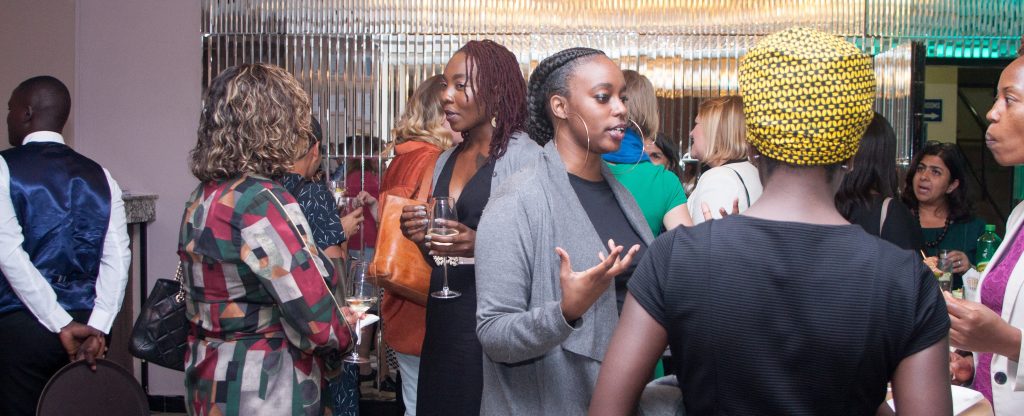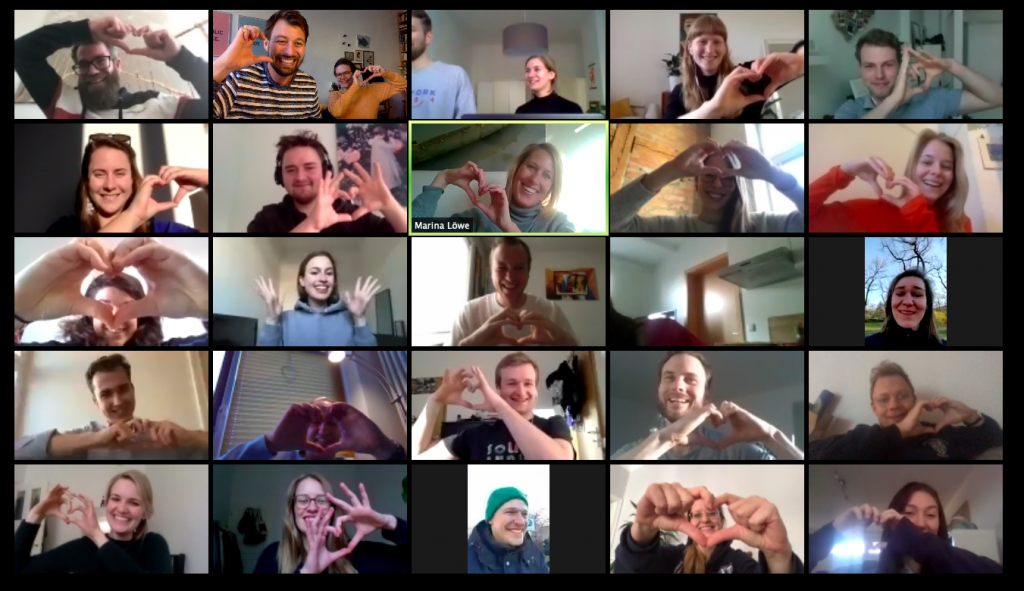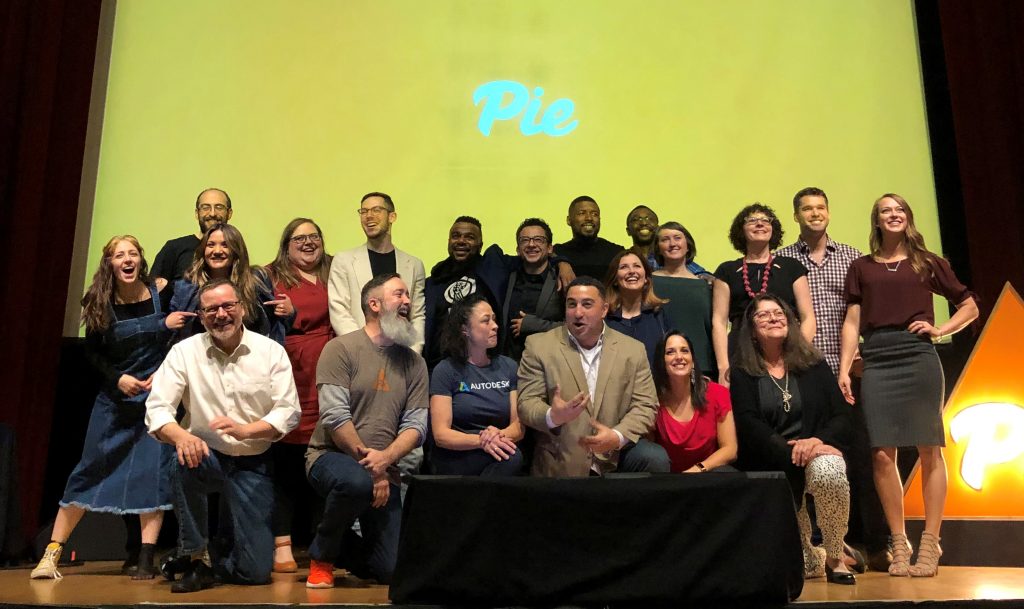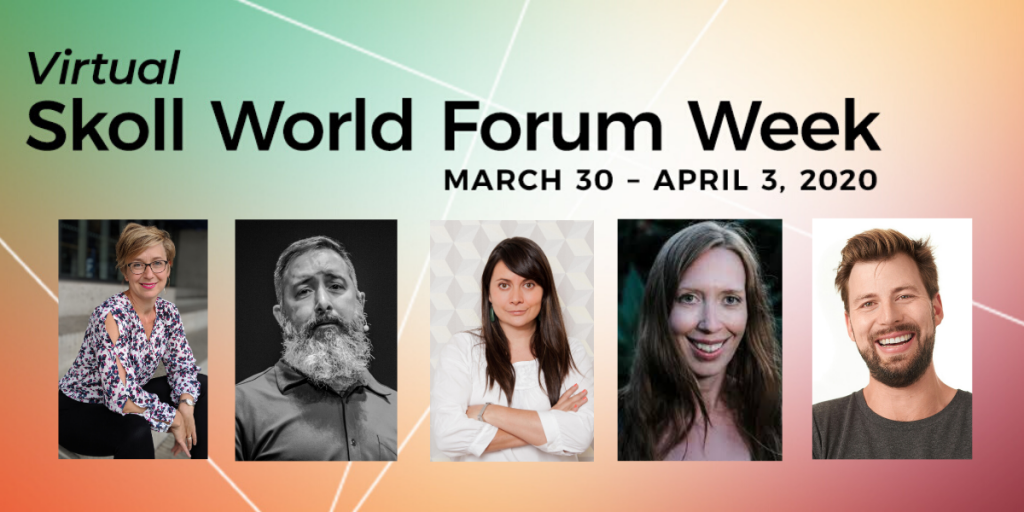Co-authored by Michelle Arevalo-Carpenter & Anika Horn
For several years now, we both have actively supported entrepreneurial ecosystems in our respective regions as what is referred to as ecosystem builders. According to the Kauffman Foundation “An ecosystem that allows for the fast flow of talent, information, and resources helps entrepreneurs quickly find what they need at each stage of growth. As a result, the whole is greater than the sum of its separate parts.” As ecosystem builders, we act as intermediaries, cheerleaders, connectors and conveners, advocates and overall-supporters of purpose-driven entrepreneurs in our communities. We facilitate and accelerate that flow of talent, information and resources by listening closely to what founders need, and by creating an invisible infrastructure in our communities to support entrepreneurs through consistent, collaborative human engagement.
COVID19 has hit social entrepreneurs hard. Their chances of recovering from the negative effects on their revenue, value chain and talent will largely depend on whether they have access to a community of support, mentorship and well-being. This is where ecosystems – nascent and established – will be presented with the ultimate test of their purpose. In the virtual Skoll World Forum this week, as IMPAQTO and Social Venturers, we hosted four global ecosystem builders to share five insights they have gained from acting as second responders to heal the fabric of communities of social entrepreneurs on four continents.
During our panel for the 2020 Skoll World Forum, we had the opportunity to hear from ecosystem builders in Latin America, North America, Africa and Europe how they are coping with COVID-19 and its impact on their entrepreneurial communities.
We heard from Rick Turoczy from Portland, Oregon, USA. He runs Pie, an early-stage startup accelerator and hub for the startup community and mentoring activity.
Michelle Arevalo-Carpenter is the co-founder and CEO of IMPAQTO, a certified B Corp running five co-working spaces and an impact business accelerator in Quito, Ecuador.
Danielle Anderson is based in Nairobi, Kenya, where she runs
- Step & Stone, a coaching and strategy consultancy for early- and growth-stage entrepreneurs, as well as
- Afri-Love Connection Club, a membership network for female founders in Kenya.
Leon Reiner is the co-founder and managing director at Impact Hub Berlin, a global network of innovation spaces to support social entrepreneurs. In over a hundred locations around the world, they provide co-working spaces as a place to bring together communities of various backgrounds to use entrepreneurship to solve some of our most pressing social and environmental challenges. Leon was also incremental in running the world’s largest hackathon to find solutions to the pandemic: #WirVsVirusHackathon
1. Put on your oxygen mask before assisting others
Ecosystem builders come in different shapes and sizes, with financial sustainability models that range from purely philanthropic to for-profit revenue streams. Many of us lead or work in organizations that enable us to support our entrepreneurial communities directly.

Danielle Anderson of Step & Stone and Afri-Love Connection Club made the case for empathy and immediate support: “We have to remember that a lot of us who provide support to the ecosystem are small businesses ourselves. We don’t rely on government funding or grants, NGOs or international development projects. We, too, are facing unpaid invoices, an empty pipeline, uncertainty and big decisions. So instead of reaching out to us ecosystem builders and asking us to support social entrepreneurs, please remember that we, too, need support. The more business support we are able to give to founders in this particular period of time, the more of them can make it to the other side of this pandemic.”
Please remember that we, too, face unpaid invoices, an empty pipeline, uncertainty and big decisions. We, too, need support.
Danielle
“In the case of IMPAQTO, immediately after the government lockdown measures were announced, we put our own oxygen masks on – figuratively speaking – to ensure we could weather this situation so that we would be in a position to support social entrepreneurs and help them put their oxygen masks on. We spent two days recalibrating what we do, projecting new revenue streams and understanding the immediate needs of local entrepreneurs. We had to shut down our five coworking spaces, one of which we opened only a month ago. With bills due at the end of the month, we had to cut salaries, cease contracts with some of our staff and we have prioritized payment to all of our small to medium-sized businesses that are our suppliers. But even then, we had to figure out a way to keep going – find new revenue streams that support our ecosystems in a lock-down world.” said Michelle.
We had to figure out a way to keep going – find new revenue streams that support our ecosystems in a lock-down world.
Michelle
Both IMPAQTO and Impact Hub Berlin were lucky to find that their funding partners trusted them to release new funding or repurpose existing grants to stay afloat and reinvent the ways in which they can attend to the ecosystem’s needs.
2. Assess the damage: Agility is king
The main quality cultivated by ecosystem builders is agility to adapt to new circumstances. “We’re a done beats perfect kind of organization,” shared Rick Turoczy of Pie in Portland. “When stores started shutting down, we immediately created a rough survey and over the course of 72 hours received almost 900 responses from small businesses sharing with us how they are impacted by COVID-19.”
In a context where a day can make all the difference between reacting on time or being too late, having data quickly allowed ecosystem builders to act. “At IMPAQTO, we quickly launched a survey nationally and then joined forces with a Latin America-wide survey with Sistema B.
Over 3,000 respondents shared that 22% had already stopped operations and that 76% will shut down within 2 months if loss of revenue continues at this rate.
Michelle
Digging deeper, we also quickly learned that entrepreneurs need more than cashflow support – they need emotional support so they can feel safe and think creatively about navigating this crisis.”
Creativity is precisely what ecosystem builders can unleash in uncovering innovative ways to manage the crisis. Leon Reiner of Impact Hub Berlin was able to convene seven like-minded organizations in Germany to organize the #WirVsVirusHackathon. Within 48 hours, 43,000 participants had signed up, with 3,000 mentors to tackle over 2,000 mapped-out challenges.
3. Activate the ecosystem through the flow or talent, information and resources
Based on the collected data, ecosystem builders were quickly able to assess the most urgent needs of social entrepreneurs in their communities.
For instance, Rick Turoczy reported “One of the immediate responses was buying gift cards directly from businesses. Even if it meant kicking the can down the road a little bit, it was at least getting some capital into the hands of founders. Fortunately, we saw that percolate nationwide.”
The #WirVsVirusHackathon was planned within five days and executed with zero funding. But Leon Reiner also pointed out that in his role as managing director at Impact Hub Berlin, he was forced to reduce staff to part-time and keep overhead as low as possible while the space remains closed. While social entrepreneurs might not be hiring right now, Leon made a case for activating your network of mentors and experts:
If you have the phone number of an excellent business consultant who usually works for big corporates, give him or her a call and see if they’ll do a quick webinar for your entrepreneurs to share some of their knowledge.
Leon
After the success of the hackathon in Germany, Leon and his team are open-sourcing the methodology in Latin America (where IMPAQTO has already joined others to replicate), India and for the organizers of a Pan-African Hackathon.

Michelle and her team at IMPAQTO were able to capitalize on some of the low-hanging fruit in terms of resources: “There’s an abundance of amazing resources online for adapting, remote working and managing crises that came from our international networks. However, the content was unfortunately only in English, so we launched a webinar series in Spanish language with local facilitators that leverage this knowledge and adapt it to local context.
In that sense, we found we could create value in two specific areas where we could deploy support immediately:
- Our corporate partners reached out and asked whether we could help their teams learn about how to work remotely effectively.
- Other NGO partners that are worried about domestic violence in the lockdown have asked us to bring in some of the innovators and change agents from the IMPAQTO network to work toward solutions in that area.
We assume that over the coming weeks, entrepreneurs will face a real struggle, not just emotionally but technically because they just don’t have the tools. To address that, we created a personalized matching mentorship program. We also created a Learn-and-Adapt webinar series to help companies in Latin America shift to digital work.”
4. Engineer serendipity and build trusting communities online
Rick Turoczy and his team at Pie at no choice but to move their Demo Day online. “Our Demo days are less about investors and more about bringing the community together to celebrate the businesses that are being built here in Portland. We’d been practicing for weeks and weeks and weeks for an on-stage theater presentation and once we saw how quickly COVID-19 was shutting down public life, we pivoted to a slide-driven, voice-over version. So basically the exact opposite. The greatest win there is that we now have a playbook that we can share with everyone else.”

Leon Reiner reported that their hackathon community remained connected even weeks after the event. “We still have a Slack channel with over 30,000 people who still want to create more solutions! We’re now busy creating a follow-up program to support these prototypes going forward.” This type of consistency and follow-on support is crucial in building trust online.
Usually as an ecosystem builder, I try to raise EUR 40,000 and the response from funders usually is hesitant. Now we’re trying to raise EUR 4 Million to support these prototypes and no-one is even batting an eye. People are so eager to get to those innovators, because current responses are not working.
Leon
Danielle reported that she, too, is trying to transition the network of female entrepreneurs of Afri-Love Connection Club to an online space. “In Kenya, we rely very much on face to face interactions in order to build trust and community. We need to invest now in order to make that shift to online so we can stay connected with all our founders and continue to support them in ways that we have not explored before.”
Consistency and follow-on support is crucial in building trust online.
“At IMPAQTO, we have been careful to build a distributed network through online tools so we don’t become the bottleneck of connections, rather, the platform.”
5. The way forward: Ecosystem builders unite!
Hearing strategies to manage crises from four different continents we quickly understood that in an effort to move forward, we need bold funders with patient capital to support
- Institutional capacity and resilience for ecosystem builders and their organizations, and
- More active global exchanges among ecosystem builders as we witnessed during this 60-minute panel.
Investing in structures and systems
This might be the least sexy investment but ecosystem builders who adapt well in these situations rely on some very basic functions. For example, being able to retain a capable administrator in your organization that helps you navigate through the new bureaucracy and funding opportunities can make all the difference in keeping the lights on. The institutionality of your ecosystem building organizations is what allows us to do this work. These things are not sexy to invest in, but they are so necessary to allow us to do the work, and to do it well. That’s what support for us looks like right now: long-term investment in our staff, in keeping the lights on, in paying for the crucial administration.
This is the time that funders and investors come to understand the importance of investing in structures and systems, not flashy initiatives.
Michelle
Investing in shared learnings and a global community of ecosystem builders for social change
This is a learning opportunity for ecosystem builders around the world. Being able to connect with other systems thinkers and architects allows us to replicate and adapt what works and accelerate the rate of learning. Most importantly, it prevents us from reinventing the wheel and wasting resources.
Now is the time to shine and we need to all come together, without our egos, and without holding back to really make this happen.
Leon
As Leon pointed out, “As a global consortium of ecosystem builders, let us try to learn together! And for those actors and organizations out there who have the power to allocate resources to this emerging field of ecosystem building – make funds available to conduct research, to help us share our learnings and to run pilots to understand how to do this work well. Nurturing and maintaining ecosystems might be more important now than ever before. But finding out what works best and sharing those insights is going to cost money.”
We need people who are ready and able to do that work, and we need organizations willing and able to support those efforts.
Leon
As a community of ecosystem builders for social change around the world, Social Venturers offers exactly that. Through our Fireside Chats, we host monthly discussions with a curated group of experts who bring a deep understanding of impact-specific topics such as impact assessment and metrics, reporting, strategy and goal setting, leadership, succession planning, responding to crisis, community building etc.
To strengthen connections among ecosystem builders and support their personal growth, we provide four-months mastermind programs tailored to the needs of ecosystem builders who are passionate about supporting social entrepreneurs and managing through this crisis.
We look forward to connecting with more ecosystem builders for social change around the world and hear what is working for you, what you are struggling with and how we can better support each other! Reach out to Anika or Michelle!
Major kudos to Michelle for co-hosting this event with newborn twins and while managing her 5-location coworking space heavily impacted by COVID-19!
If you want to read more about the importance of ecosystem builders in the current situation, we recommend Jeff Bennett’s article “Now more than ever we need ecosystem builders“.
